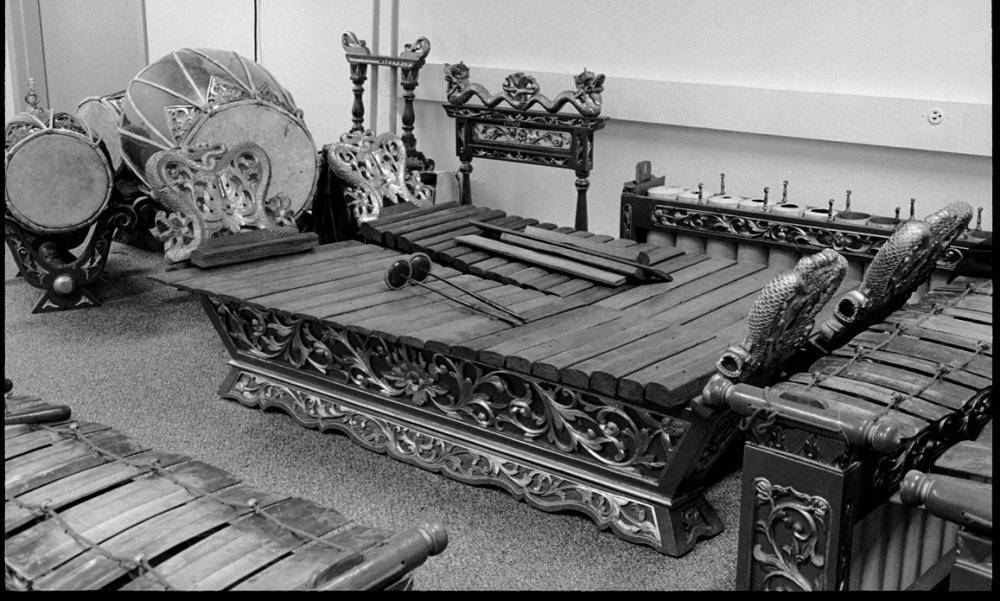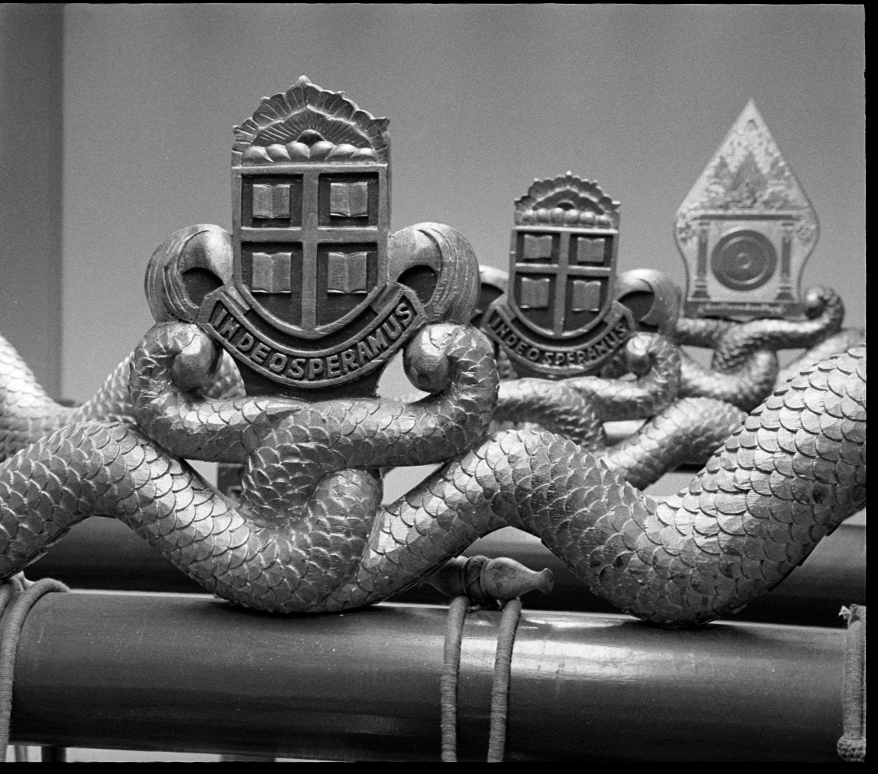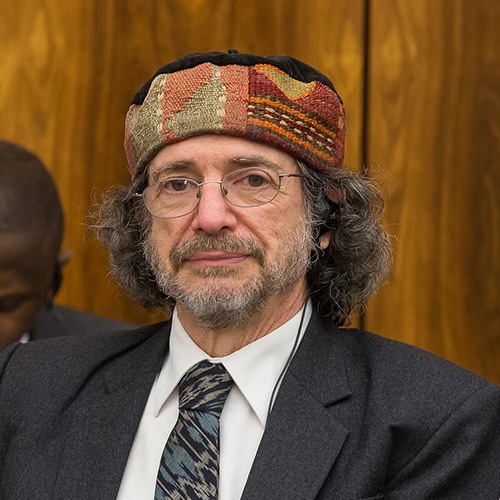Gamelan music is very much an ensemble music, and the players and singers, despite their various musical roles, must be sensitive to each other. There is no visible conductor, but the drum (kendhang) and the bowed lute (rebab) lead the ensemble with subtle aural cues.
Course:
MUSC 0650
Directors:
Marc Perlman & I.M. Harjito

The complete gamelan orchestra is made up of a number of different gongs and metallophones, and students can learn to play several instruments over the course of a semester.They often begin with the seven-keyed saron, which plays the "skeletal" melody of the composition (balungan). They may also learn to play several types of gongs, which punctuate this melody according to different proportional divisions of the time cycle. Other more advanced instruments such as the gender, the gambang, the rebab, and the pesindhen round out the ensemble with melodies that express the performer's personal interpretations of the composition.

